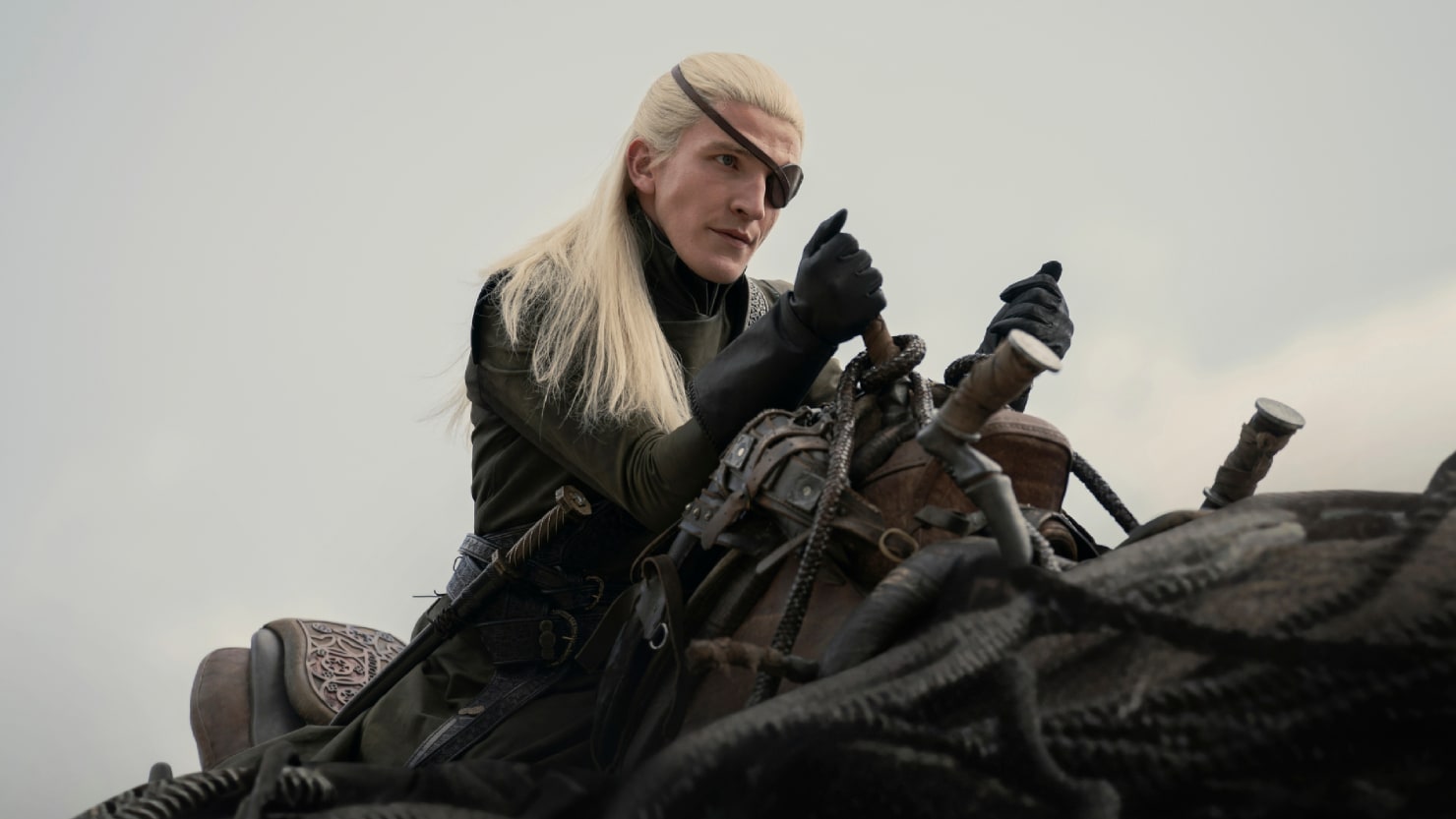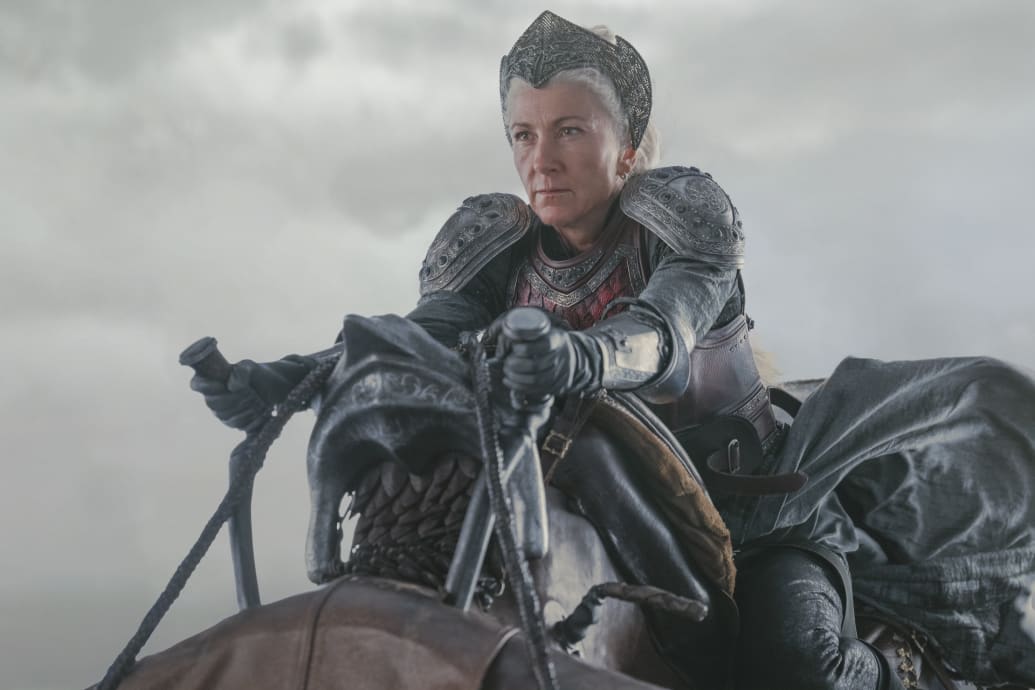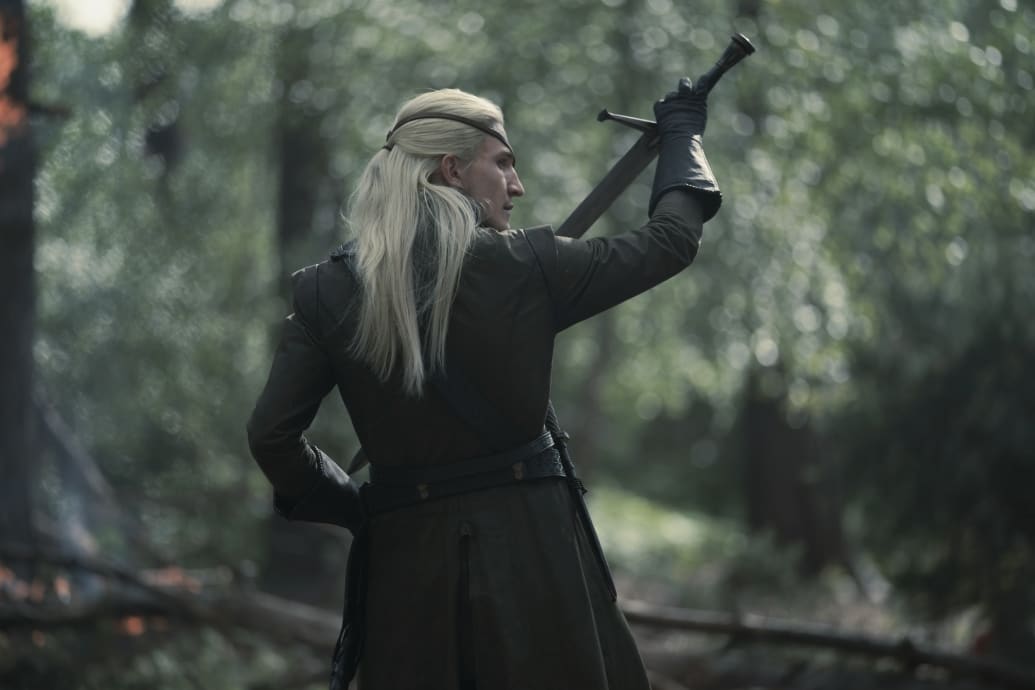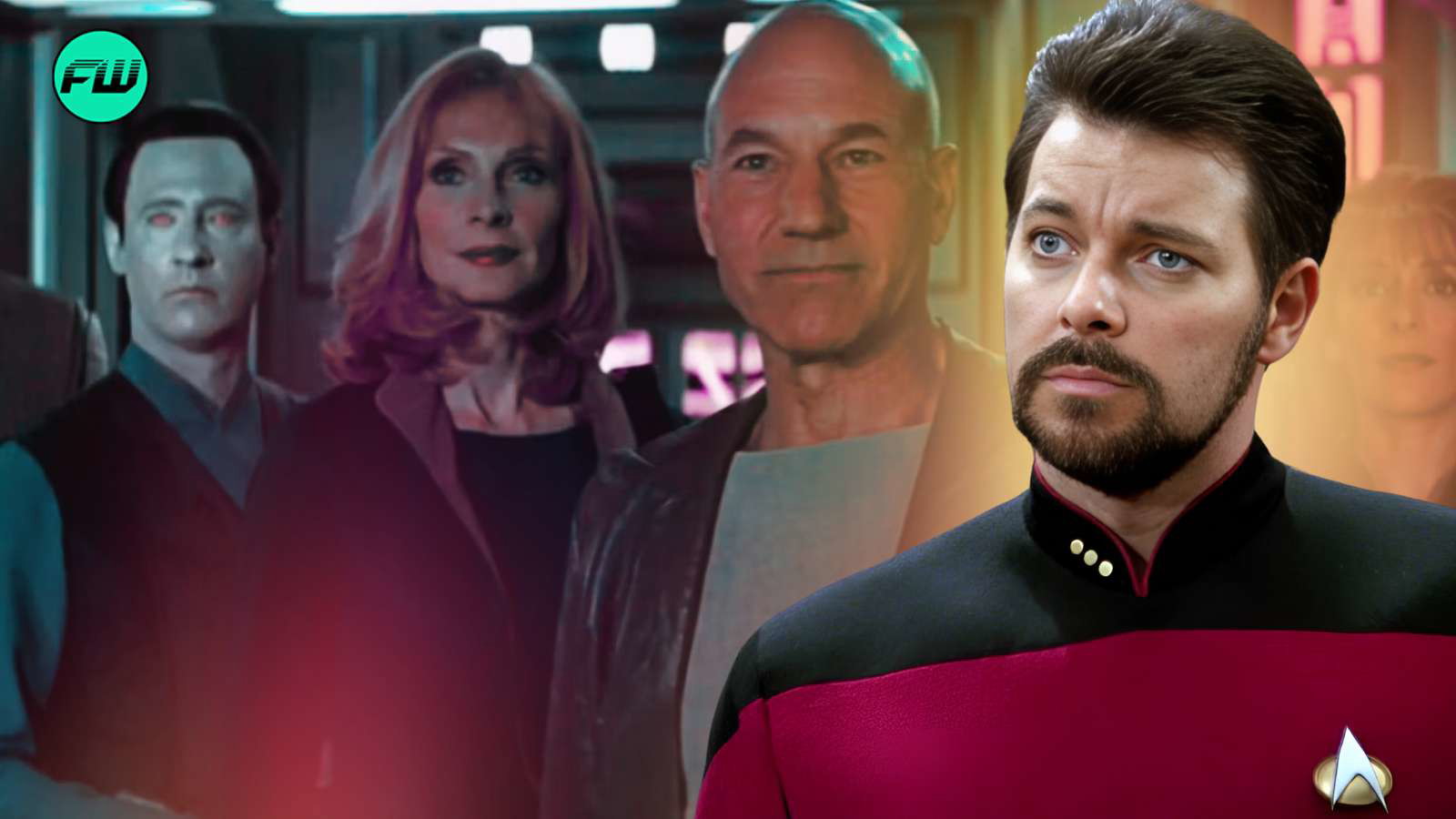Deadly House of the Dragon War Finally Makes Aemond a True Villain

It took four episodes, but the House of the Dragon fires on two main fronts: its dragon dance and its deviations from the source material finally and unequivocally make one of the characters evil.
As House Targaryen descends into a bloody civil war, the death toll rises and the battlefields turn red. Two children have been brutally murdered. At this point, it should be easy to find clear villains on both sides. But every time House of the Dragon deviates from George RR Martins Fire and blood So far, it’s been about attributing important character decisions to accidents and misunderstandings, effectively absolving the characters of responsibility for their decisions: Aemond (Ewan Mitchell) didn’t want to kill Lucerys (Elliot Grihault)! Alicent (Olivia Cooke) only supported her son’s accession to the throne because she had confused her Aegons!
In Episode 2, when Daemon’s (Matt Smith) hired assassins asked what they should do if they couldn’t find Aemond, the scene cut before we could hear his answer – a narrative excuse designed to shield the character from the burden of his decision. If we hadn’t explicitly heard Daemon name an alternate target, we wouldn’t be able to blame him for the murder of a child.
The series also cannot allow Rhaenyra (Emma D’Arcy) to go astray. So far, she has been portrayed as a pacifist who puts the good of the kingdom above her personal ambitions and constantly seeks peace, even as her birthright is stolen and her throne usurped. How much can you really take before you go mad? But there is still the The Song of Ice and Fire Prophecy again to explain the more polished edges of Rhaenyra’s characterization – she was raised to believe that she is destined to unite the realm against a common enemy, even as her own family falls apart. She comes closest to vengeance in Episode 2, when she demands that Aemond suffer for the murder of her son. When her words lead to the murder of a child instead, however, she is horrified and quickly returns to her more pragmatic stance.

Even when various plot misunderstandings become woven into the plot of the series itself and the characters are forced to confront them, as in last week’s episode, the consequences are minimal. Alicent realizes she misunderstood her late husband’s final words, but she clings to denial even in the face of that knowledge—the war machine has already been set in motion, and she knows she’s powerless to stop the men around her from marching on.
It’s understandable why the series wants to make its female characters more sympathetic. Fire and blood is written as an in-universe narrative, cobbled together from unreliable sources and their ruthless, misogynistic views of the women around them. But by tying the women’s stories to circumstance rather than choice, the series now robs them of any real agency.
In “The Red Dragon and the Gold,” which aired earlier this week, House of the Dragon does the unexpected: it eventually becomes villainy.
Unlike in the book, where King Aegon (Tom Glynn-Carney) of Team Green and Aemond join forces to defeat Rhaenys (Eve Best) of Team Black in a battle on the Dragon’s Back above Rook’s Rest, here it is Aemond alone who is supposed to ambush her during an attack he has planned with Criston Cole (Fabien Frankel).
He was seething with irritability and inadequacy, suffering from the humiliation inflicted on him by his brother and mother in quick succession, And Aegon is a little drunk and decides to fight them instead. Instead of rushing to his aid immediately, Aemond stays behind. It’s a clear deal – he knows that Aegon’s dragon is the smallest and least battle-hardened of the three involved in this fight. And as expected, Sunfyre is torn to pieces by Rhaenys’ dragon Meleys. When Aemond finally swoops in, he is to deliver the killing blow. As he unleashes dragon fire on the hapless king, the initial relief on Aegon’s face when he sees his brother turns to horror. Aemond is no longer the man who lost control of Vhagar and accidentally killed Lucerys. This is intentional.
Aemond’s resentment towards Aegon has been building for some time. In the previous episode, the king bursts into the local brothel and mocks him at his most vulnerable. When Aemond leaves, it’s as if a switch has been flipped. Even naked, his hardened self-control contrasts with Aegon, who wears the armour of his namesake the Conqueror but otherwise bears little resemblance to him.
Aemond harbors a grudge, but he also harbors ambition. He longs for the throne so much that he can barely put it into words. “I’m the younger brother who studies history and philosophy, I’m the one who trains with the sword, I’m the one who rides the world’s greatest dragon. I’m the one who should be…” he tells Criston in Season 1, Episode 9 before trailing off.

He has no such qualms about expressing himself in The Red Dragon and the Gold, where he first wounds Aegon with his words before ever drawing his weapons. At a meeting of the Green Council, he hurls scathing insults at his brother in fluent High Valyrian, putting him in his place with his language skills alone. Some of his word choices—”nickname” and “imbecilic sycophant”—can’t possibly be common parlance, which speaks to how educated he is. A halting “I can… must… fight… a… war?” is all Aegon can manage in response before giving up and reverting back to English. None of the other council members understand High Valyrian, but Aegon’s awkward hesitation in the face of Aemond’s authoritative attitude shows who is really in charge here.
At the end of the episode, a badly wounded Aegon and his dragon have fallen from the sky. As Aemond approaches, sword drawn, is he considering euthanasia? Or is he thinking about being the next heir to the throne? When he points out Aegon’s motionless body to Criston, the knight stares in horror. However, Aemond simply turns and leaves. Amid the burning flames and smoke, the sheer coldness of his abandonment remains palpable.


